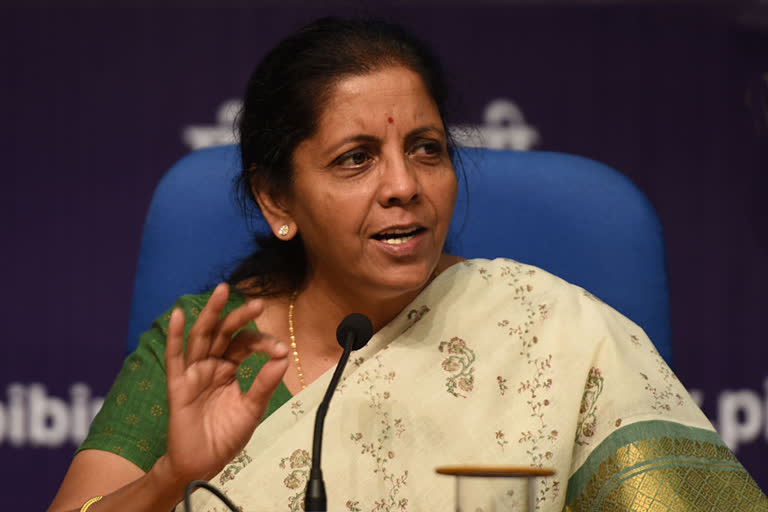New Delhi: Despite the flight of over Rs 20,500 crore worth of foreign funds from the country's stock market, the government seems adamant to implement the taxation surcharge on the super-rich category which has spooked Foreign Portfolio Investors (FPIs).
The carnage at the indices began since July 5, when the Budget proposed a levy of an additional surcharge on individuals and trusts earning more than Rs 2 crore and Rs 5 crore, respectively.
However, Finance Minister Nirmala Sitharaman in Parliament made it clear that the super-rich tax was here to stay. She also gave a solution to the FPIs by advising them to register as companies to be out of the ambit of the surcharge.
Sources said that government is looking whether provisions of sections 119 of the Income-tax Act can be applied in the case of FPIs to provide them partial relief from super-rich tax.
Section 119 empowers the Central Board of Taxes (CBDT) to direct income tax authorities to allow any claim for exemption, deduction, refund, and any other relief under the Income-tax Act even after the expiry of the time limit to make such claim.
This section may be used to allow FPIs deductions on the total tax paid during 2019-20. The deductions would be limited a three month period when income was generated without knowledge that tax changes are coming.
Read more:China no longer top trading partner of US
In a recent panel discussion which was organized by ET, the then Finance Secretary Subhash Chandra Garg, who is now the Power Secretary, was quoted as saying: "So FPI, I'd also mentioned it, was not in the frame in the surcharge that was raised. It's a little collateral kind of consequence.
"They are quite vocal. The FPIs basically make investments in the secondary market. They don't make it the primary market. If you were to look at the economic and financial consequences of what their behavior might be with our share markets actually being in very high PE ratios, it's not in the economic disinterest of the country if slight exit takes place.
"It also doesn't affect the real investment in the economy. But still, there was an attempt on how we can find a way out to sort of at least take out both FPIs, which represent smaller investors, don't represent the cash-rich. It becomes very messy. It has not been possible to find a way out. Then the conclusion is, which I also read, and the Finance Minister also had very clearly spoken - I don't think anything is going to be done for them in this year."
Notwithstanding, the FPIs continue to be on a selling spree ever since the budget was announced.
Retail traders grouse that over Rs 12 lakh crore in market cap has been eroded and that FPIs have over 50 countries apart from India to put in their investments.
Nonetheless, stock markets participants fear that once implemented, this move may adversely impact FPIs which are set up as non-corporate vehicles. Typically, FPIs are set up as trusts or limited partnerships in their home jurisdictions.
The definition of a partnership firm under Indian tax law refers to the Indian Partnership Act, which does not recognize foreign partnerships or limited partnerships.
While the rationale behind such an increase in surcharge is to levy a higher surcharge only on high net worth individuals (HNIs) to garner more revenues in tax falling scenario, it has sent jitters among FPIs, and partially triggered the subsequent crash in the stock market.
Taking this into account, recently, the Central Board of Direct Taxes (CBDT) Chairman P.K. Modi had offered a solution to such FPIs that restructure themselves as corporate entities.
Nonetheless, as of August 2, FPIs have been a net seller of over Rs 20,500 crore worth of stocks on the BSE, NSE, and MSEI in the capital market segment, since July 1.
On July 18, while ruling out tweaking the FPI surcharge, Sitharaman said trusts should register as companies to be out of the ambit of the surcharge.
"Some FPIs are registered as trusts. Therefore as an individual entity, he comes under taxation. Such FPIs who have registered themselves as trusts may consider the option of wanting to move to register a company," she said in reply to the Finance Bill, 2019 in Parliament.
